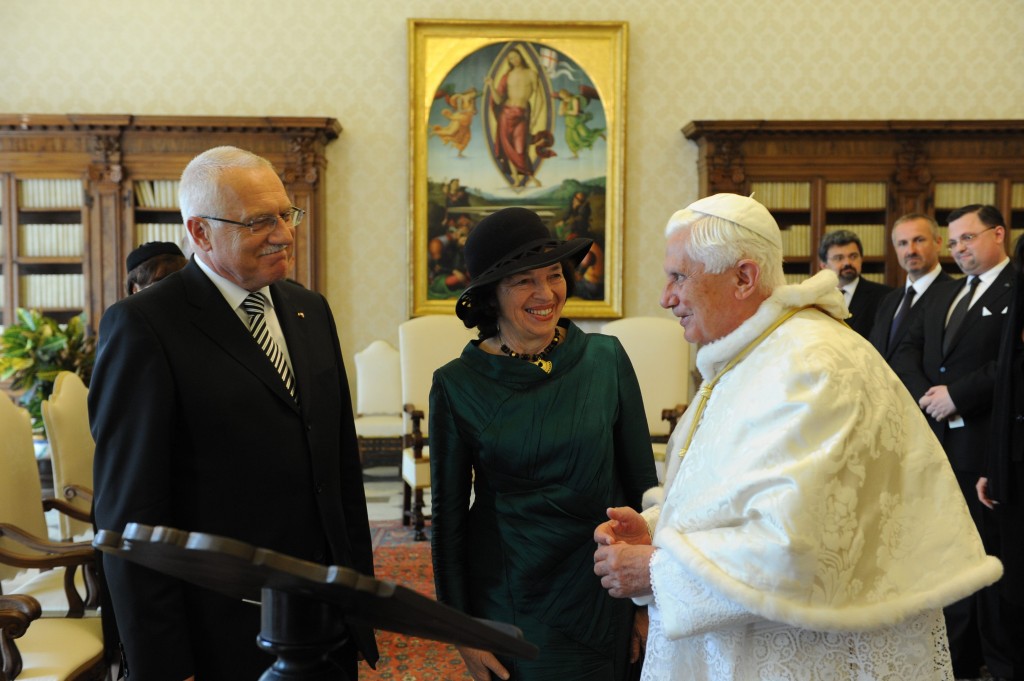A trip with manifold meanings the one programmed by Benedict XVI from 26th to 28th September in Czech Republic. To welcome Him is one of the country in the world where atheism is more spread, and one among the few in Europe that has not yet stipulated a Concordat with the Holy See. In fact, here the question of the restitution of the ecclesiastic goods stolen during the regime is still to be determined.
Cardinal Miloslav Vlk, in the interview already appeared in this magazine, has underlined the pastoral character of the next Papal visit. But this event, as he clearly stated, will occur in an atmosphere marked by important matters concerning the relations between Czech Republic and the Vatican, which remain still open.
After twenty years since the fall of the regime, Czech Republic remains the last country of the Warsaw Pact that has not a Concordat with the Holy See yet. Seven years ago, in fact, the last attempt failed. On that occasion – we are speaking now of 2002 – the Prague Government and the Vatican reached an agreement stipulated in the forms of an international treaty. But the ratification was thrown out the following year by the Czech Parliament. Out of 177 congressmen present in the room, 111 voted against the ratification of the Concordat. It was therefore an absolutely cross-party opposition. To vote against were not only the members of the link parties, Communists (Kscm) and many Social Democrats (Cssd), but also the Conservatives of the civic Democratic party (Ods). “A treaty of this kind seems to me thoroughly useless, since the relations between the Government and the Church are already regulated by our national laws” so held on that occasion Jan Zahradil, who was by then the vice-president of Ods, thus expressing an opinion which, still today, seems to be widely shared by the majority of the Czech people, and first of all by the Head of State Vaclav Klaus.

The feeling is that among the Czechs prevails, more than an attitude of religious indifference, a real hostility towards the Church, as though the Czechs continued to accuse Catholicism of some pages of the past history of this country, from the Battle of the White Mountain to the supports to the House of Habsburg in order to oppose the national aspirations of the Czechs.
Some anti clerical attitudes can be further explained by the fact that Czech Republic is one of the least religious countries in Europe.
According to the latest census of 2001, in Czech republic about 59% of the population is without religion and Catholics represent less than 30%. Even clearer are the results of the latest survey carried out by Eurobarometro, which shows that Czech people believing in God are about 25% of the whole population.
What’s more, the Concordat of 2003 was rejected by Czech Parliament although that document did not include any reference to the issue of the restitution of the church goods nationalised during the years of the communist regime. In fact, this matter is still one of the most difficult to settle. It is more than twenty years now that the Church has been trying to recover this myriad of palaces, lands, woods and churches, without any effect. A patrimony whose value, according to some estimates, might be over three billiard euros.
In 2007 the Government led by Mirek Topolanek succeeded in drawing up a bill about restitution which was likely to have been successful. But the attempt was almost soon a failure in the Chamber of Deputies. In fact, even some deputies of the premier’s party said: “It is a too much generous solution for the Church”. Even in that case the cross-party opposition of he political world, except for the sole Christian Democratic party (Kdu-Csl) seemed to be in keeping with a public opinion who is widely unfavourable to try and sort problems out.




